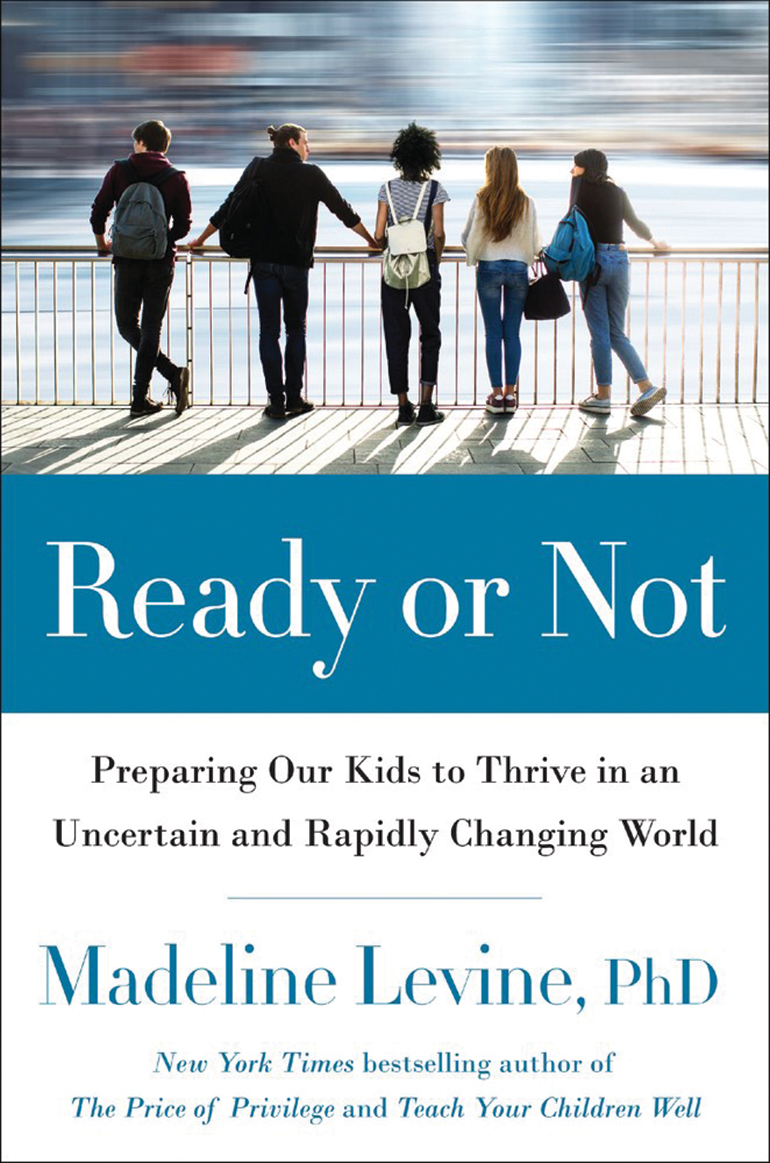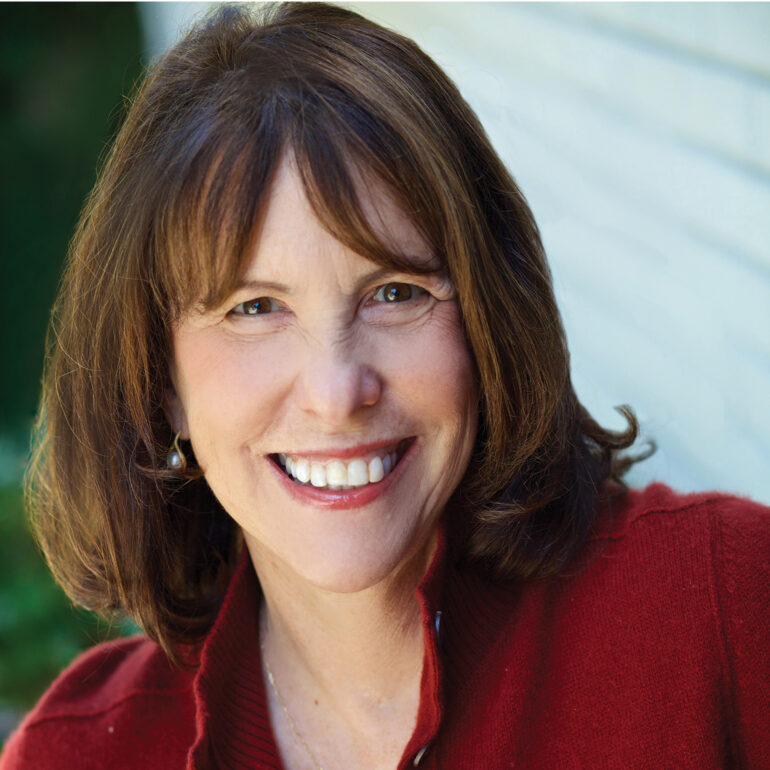From the changing climate to the competition to get into a good college, children know that the greatest challenges are ones their parents cannot protect them from. In The Price of Privilege and Teach Your Children Well, clinician Madeline Levine presented some of the limited views that parents have to overcome in order to provide the best environment for childhood development. She continues this work in Ready or Not, identifying the tools that today’s children will need to become tomorrow’s leaders and suggesting strategies to help them develop those skills.
At what point in your psychology career did you decide to make the issue of high-pressure/high-privilege parenting your area of focus?
About 15 years ago. The Price of Privilege was written when I was still practicing in Marin (I’m in San Francisco now) and I had been practicing for around 20 years at that point, and I was seeing this new kind of patient. Usually in psychology you see people who look depressed and act depressed, or look anxious and act anxious — and that wasn’t the case. I was increasingly seeing kids who looked OK, and who came from the kind of environment that we think of as protected (concerned parents, good education), but they weren’t OK. I like a challenge, and I really didn’t understand what was happening, so I set out to see what research there was, and there was very little. So that turned into The Price of Privilege.

Do you find that helicopter/high-pressure parenting occurs more in certain demographics than in others?
Sure. You know, if you’re working two jobs and trying to put food on the table, you don’t have the time to hover over your kids. But let me be clear: I don’t think it’s only upper–middle class parents. I think it has drifted down to the majority of parents, particularly because of this economy. People either make a lot of money or don’t. No parent wants their kid to be a loser. So, it’s the middle class, it’s the upper–middle class, it’s the affluent — but it’s probably not people who are struggling to get by.
So the issue is a lot more normalized now than it was a little more than a decade ago?
Yes. I think that it has become incredibly clear that this is a problem; I don’t have to convince anybody anymore that there are high rates of anxiety and depression, because people see it all around them. My question in this new book is why aren’t we doing much about it?
What’s one simple and really important daily change that a parent can make to shift toward a healthier parenting style?
My first takeaway is always talk less and listen more. I have never had a kid in my office who said, “My parents listen too much.” I think that when our kid says they’re stressed, or having a hard time managing it all, we don’t have to come in and make them less anxious, but we do really need to listen to what they’re saying.
For more on high-pressure parenting, read advice from child psychologist Dr. Wendy Mogul, examine the phenomenon of helicopter parenting or look at how overprotection and privilege can make for a dangerous mix.
This article originally appeared on marinmagazine.com.
 Calin Van Paris is a Mill Valley native and the former Assistant Editor of Marin Magazine. Now a regular contributor and Petaluma resident (yay, dairy!), Calin continues to shout her love for Marin from Sonoma County rooftops, while journeying south frequently to feed her Sol Food addiction. Calin also writes about beauty for Vogue.com and gets her kicks from long walks, Point Reyes beaches, good books, traveling, food and friends.
Calin Van Paris is a Mill Valley native and the former Assistant Editor of Marin Magazine. Now a regular contributor and Petaluma resident (yay, dairy!), Calin continues to shout her love for Marin from Sonoma County rooftops, while journeying south frequently to feed her Sol Food addiction. Calin also writes about beauty for Vogue.com and gets her kicks from long walks, Point Reyes beaches, good books, traveling, food and friends.

